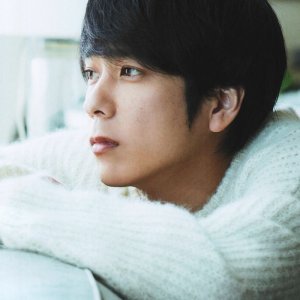人情
There is a scene in one of the initial episodes, where the protagonist's mentor holds up a slip of paper and asks what it is. The person who he is speaking to identifies it as a stock warrant. The mentor replies, "Wrong. It represents a social tie."
This is the essence of the show. Blossoms Shanghai describes a time of economic reform in China in the early 90s, when it was undergoing rapid change. It is set in Shanghai, where many people come with the hopes of becoming rich. We're introduced to a vibrant array of characters, and it is the many intricate relationships formed between them that are at the heart of this show. The characters are multifaceted, and we witness their ups and downs as they follow their ambitions, seeing how they've built themselves up from where they were before, with the help of those they've met. Those at the height of their success were not always the strongest, and it is always faster to fall than it is to climb back up. They come in and out of each other's lives, changing and adapting just as the environment around them is constantly changing. Hu Ge plays a charming and confident protagonist, who draws upon a combination of his wit, social network, and luck to become the well-respected Bao-zong. What really stole the show for me were the female characters. They're not afraid to be ambitious, loud and spirited, or calculating and tenacious. The actresses, Ma Yili, Tang Yan, and Xin Zhilei, are all phenomenal in their roles. Although romance does play a role in the characters' motivations and influences their growth, it is not the main focus of the show. You Benchang's performance as A-Bao's mentor is noteworthy and the minor characters are also not to be forgotten.
And of course, Wong Kar-Wai does not disappoint when it comes to creating a visual feast. The cinematography is beautiful, the music sets the mood, and the foreshadowing and shot choices are deliberate and well thought out.
All in all, this is a memorable show that stands out for its vibrant characters, strong acting and brilliant directing. I've taken one star off for rewatch value, mainly because the parts that focused on the stock market and the history of its development were of less interest to me. Those looking for a lighthearted watch may not find it enjoyable, as Wong Kar Wai's style tends to lean more towards drama (but never tipping into overdramatic). What really hooked me in are the characters — just as time continues forward, the relationships they form with one another ebb and flow. Although these relationships may be as transient as the passing time, the impact they've had on each other will stay with them as the person grows.
This is the essence of the show. Blossoms Shanghai describes a time of economic reform in China in the early 90s, when it was undergoing rapid change. It is set in Shanghai, where many people come with the hopes of becoming rich. We're introduced to a vibrant array of characters, and it is the many intricate relationships formed between them that are at the heart of this show. The characters are multifaceted, and we witness their ups and downs as they follow their ambitions, seeing how they've built themselves up from where they were before, with the help of those they've met. Those at the height of their success were not always the strongest, and it is always faster to fall than it is to climb back up. They come in and out of each other's lives, changing and adapting just as the environment around them is constantly changing. Hu Ge plays a charming and confident protagonist, who draws upon a combination of his wit, social network, and luck to become the well-respected Bao-zong. What really stole the show for me were the female characters. They're not afraid to be ambitious, loud and spirited, or calculating and tenacious. The actresses, Ma Yili, Tang Yan, and Xin Zhilei, are all phenomenal in their roles. Although romance does play a role in the characters' motivations and influences their growth, it is not the main focus of the show. You Benchang's performance as A-Bao's mentor is noteworthy and the minor characters are also not to be forgotten.
And of course, Wong Kar-Wai does not disappoint when it comes to creating a visual feast. The cinematography is beautiful, the music sets the mood, and the foreshadowing and shot choices are deliberate and well thought out.
All in all, this is a memorable show that stands out for its vibrant characters, strong acting and brilliant directing. I've taken one star off for rewatch value, mainly because the parts that focused on the stock market and the history of its development were of less interest to me. Those looking for a lighthearted watch may not find it enjoyable, as Wong Kar Wai's style tends to lean more towards drama (but never tipping into overdramatic). What really hooked me in are the characters — just as time continues forward, the relationships they form with one another ebb and flow. Although these relationships may be as transient as the passing time, the impact they've had on each other will stay with them as the person grows.
Was this review helpful to you?















